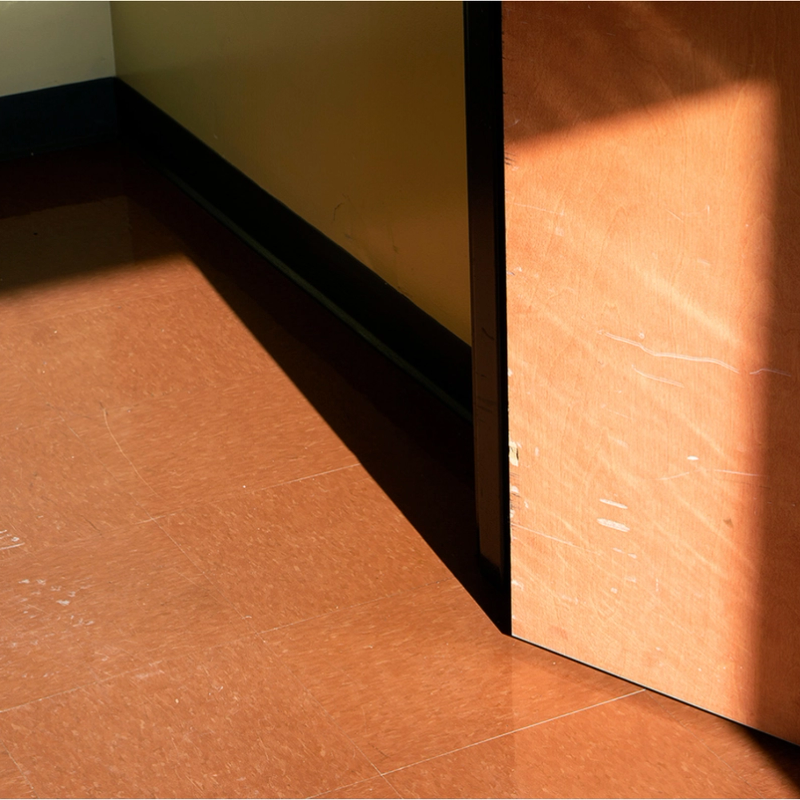Marimacho
by Ana Fores-TamayoShort cropped hair. Flat-chested, stocky,
with large hamstrings like a boxer.
Butch, he calls me, marimacho. I have always been this way
I murmur hoarsely, ever since I could remember.
I can be happy though. Why won’t he let me be?
The Mara takes a gun to my head, grazing my chin, seductively swearing
he’ll stab me inside with its protruding metal barrel,
make me squirm like the woman
I never want to be.
I run.
He begins to shoot, slow motion flying.
I hear the buzzing breaking boundaries,
the war zone where I live explodes into a shambling chaos,
and others—MS13—fire at my aggressor now.
But they don’t shoot because of me, I think.
He is the opposing Mara, the other gang, barrio 18.
I run I run I run I run I run
I remember my father touching me,
warning me, I will make you a woman.
Even when I was too young to know what it was like to be
a woman, a man, he would stroke me.
I am a child filled with fear.
I am a woman a man afraid.
His touch makes me cringe, and I avoid
The graze of any man against my skin, now, forever.
I clip my hair short; I strut the streets, freed at last.
My strapping stride makes me stand out.
I work as security for some time, until other men
claim I am a freak of nature, a sin to God for impersonating man
for being woman man:
they can rape me still.
So the abuse continues—ravishment, assault, desecration, destruction.
Once more I wing lightning, I retreat,
I FLEE.
Everlasting escape is a constant no,
safety I can find nowhere, nowhere because
all abandon what they cannot understand.
And then I journey here, I beg asylum,
I plead do not let death claim me in the streets of my beloved country
that does not want me,
a man woman who only yearns to leave live in peace,
who wants to love, to feel joy, to be not condemned
because you say I am butch, I am marimacho.
Butch / Marimacho#
Ana Fores-Tomayo
In the original Spanish
Pelo corto. De pecho plano, fornido,
mis jarretes amplios como boxeador.
Butch, me llama, marimacho. Siempre he sido así
murmuro roncamente, desde que puedo recordar.
Aunque podría ser feliz. ¿Por qué no me dejan?
El mara apunta la pistola a mi cabeza, acaricia mi barbilla, jura
que me apuñalará por dentro con el barril metálico que sobresale el cachorrillo,
me hará retorcer como esa mujer que
nunca quisiera ser.
Corro.
Comienza a disparar, a cámara lenta vuelan los tiros.
Escucho los zumbidos rompiendo fronteras,
la zona de guerra donde vivo explota en un caos desgarrador,
y otros—la Mara Salvatrucha—ahora comienza a disparar a mi agresor.
Pero no disparan por mi, pienso.
Él es de la mara opuesta, la otra pandilla, Barrio 18.
Corro corro corro corro corro
Recuerdo mi padre tocándome
advirtiéndome, te haré mujer.
Incluso cuando era demasiado joven para saber cómo era ser
mujer, hombre, me manoseaba.
Soy una niña convertida en terror.
Soy hombre mujer espantada.
Su toque me hace temblar, y evito
El roce de cualquier hombre contra mi piel, ahora. Siempre.
Me corto el pelo; pavoneo por las calles, finalmente libre.
Mi zancada de paso confiado me hace destacar.
Trabajo como seguridad por algún tiempo, hasta que otros hombres
afirman que soy un fenómeno de la naturaleza,
un pecado contra Dios por hacerme pasar por hombre
por ser mujer hombre:
aunque todavía me pueden raptar.
Así que el abuso continúa: violación, asalto, blasfemia, destrucción.
Una vez más aleteo como un rayo, me retiro,
HUYO.
El escape eterno es un constante no,
La seguridad no encuentro en ninguna parte, ninguna parte porque
todos abandonan lo que no pueden entender.
Y luego viajo aquí, les pido asilo,
Suplico que no dejen que la muerte me reclame en las calles de mi amada patria
que nunca me ha querido,
un hombre mujer que solo anhela vivir en paz,
quien quiere amar, sentir alegría, no ser condenada
porque todos dicen que soy butch, soy marimacho.
